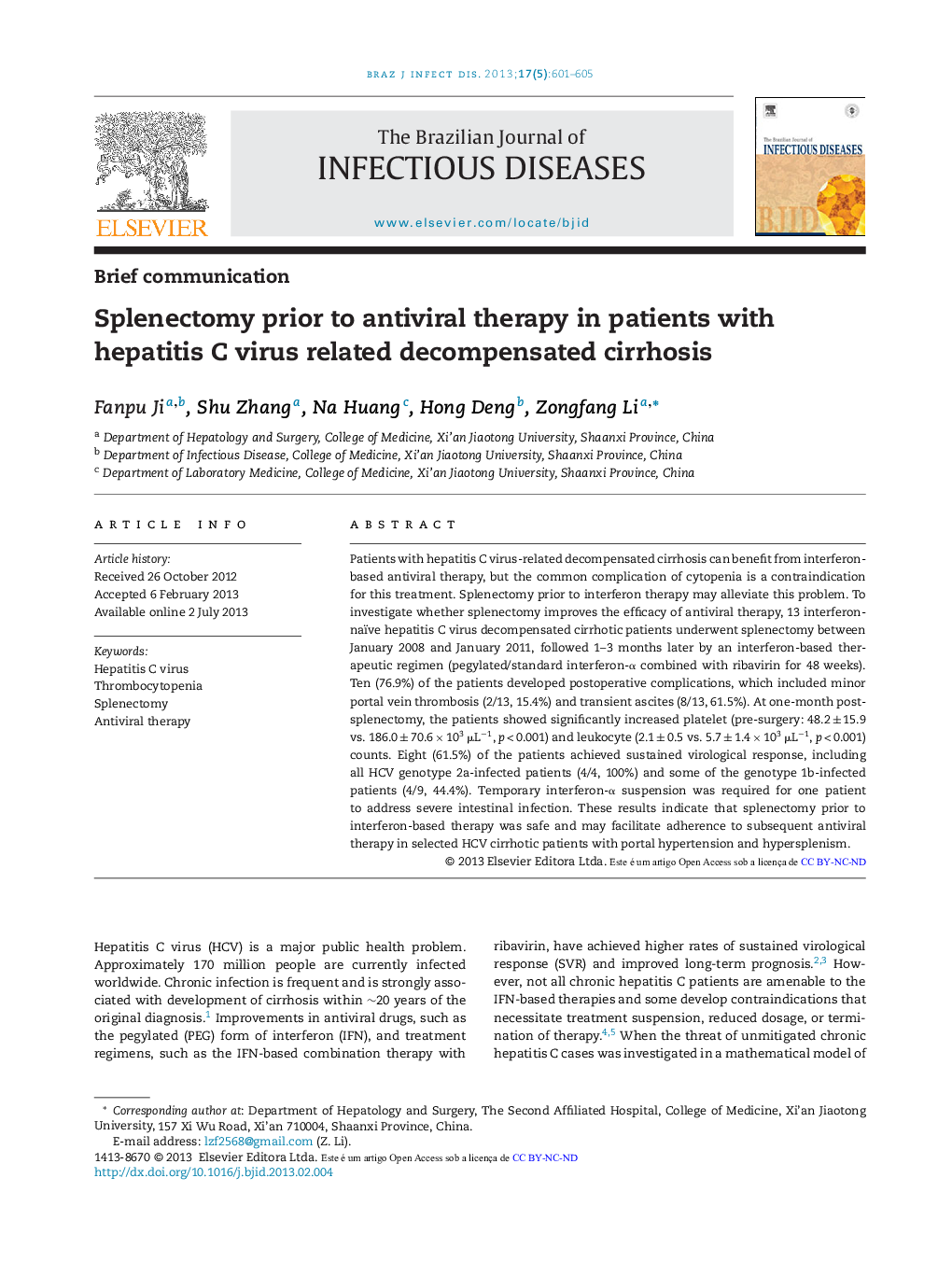| Article ID | Journal | Published Year | Pages | File Type |
|---|---|---|---|---|
| 3344109 | The Brazilian Journal of Infectious Diseases | 2013 | 5 Pages |
Patients with hepatitis C virus-related decompensated cirrhosis can benefit from interferon-based antiviral therapy, but the common complication of cytopenia is a contraindication for this treatment. Splenectomy prior to interferon therapy may alleviate this problem. To investigate whether splenectomy improves the efficacy of antiviral therapy, 13 interferon-naïve hepatitis C virus decompensated cirrhotic patients underwent splenectomy between January 2008 and January 2011, followed 1–3 months later by an interferon-based therapeutic regimen (pegylated/standard interferon-α combined with ribavirin for 48 weeks). Ten (76.9%) of the patients developed postoperative complications, which included minor portal vein thrombosis (2/13, 15.4%) and transient ascites (8/13, 61.5%). At one-month post-splenectomy, the patients showed significantly increased platelet (pre-surgery: 48.2 ± 15.9 vs. 186.0 ± 70.6 × 103 μL−1, p < 0.001) and leukocyte (2.1 ± 0.5 vs. 5.7 ± 1.4 × 103 μL−1, p < 0.001) counts. Eight (61.5%) of the patients achieved sustained virological response, including all HCV genotype 2a-infected patients (4/4, 100%) and some of the genotype 1b-infected patients (4/9, 44.4%). Temporary interferon-α suspension was required for one patient to address severe intestinal infection. These results indicate that splenectomy prior to interferon-based therapy was safe and may facilitate adherence to subsequent antiviral therapy in selected HCV cirrhotic patients with portal hypertension and hypersplenism.
